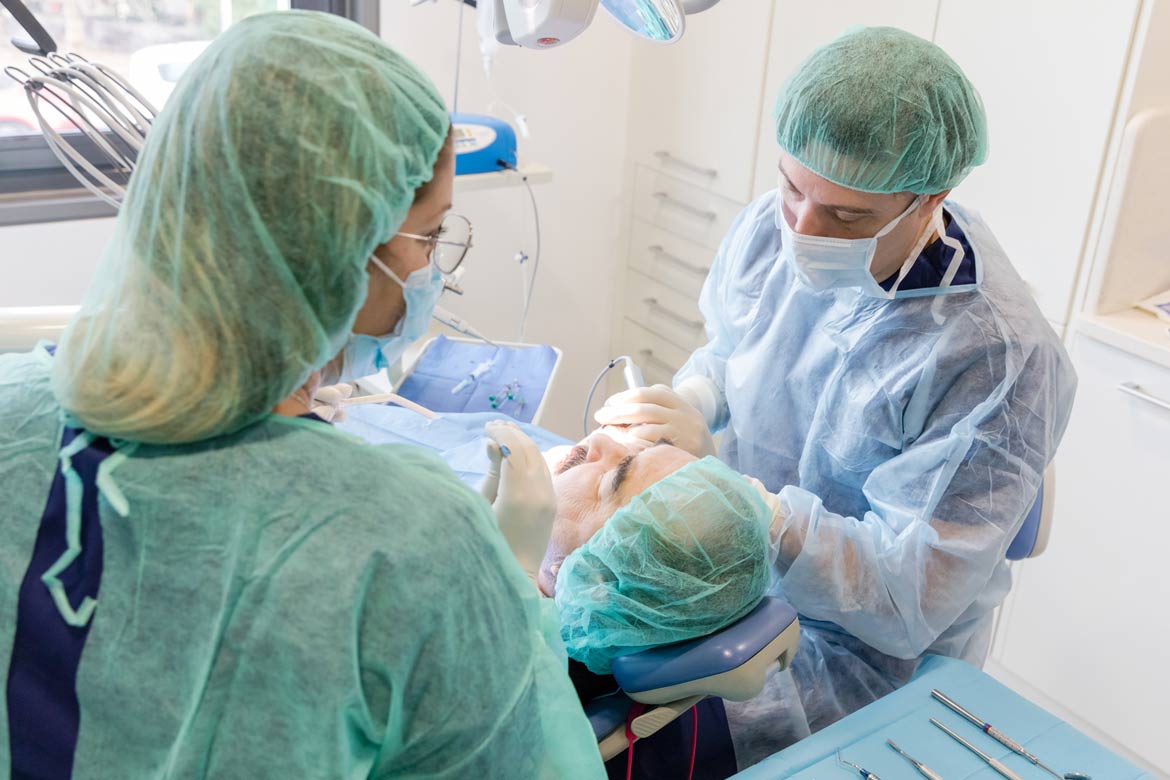Dental Extractions in Mallorca
Do you want to solve your dental or facial problem?
Ask us for an appointment with free check-up and diagnosis
Whether you want to start treatment or request information, you are in the right place. Leave us your details and we will contact you within three hours.

What is a tooth extraction?
A tooth extraction is a procedure in which a tooth is removed from the alveolar bone, the bone that supports the teeth. This procedure is commonly necessary when a tooth is irreversibly damaged due to severe decay, infection, or trauma. It is also common in cases of impacted teeth, such as wisdom teeth, which can cause pain, infection or affect the alignment of other teeth.
When is a tooth extraction necessary?
There are several reasons why your dentist may recommend a tooth extraction:
When a tooth is so damaged that it cannot be restored with a filling or crown.
An infected tooth that does not respond to antibiotic treatment or root canal therapy may need to be extracted to prevent the spread of infection.
Types of tooth extractions
At Udemax clinics, we understand that each case is unique, which is why we offer different types of tooth extractions, tailored to the specific needs of each patient. Each extraction is carefully planned, taking into consideration your dental and general health history to ensure you receive the most appropriate treatment. From the initial consultation to post-operative care, our team is committed to your well-being, using the most advanced techniques and state-of-the-art equipment to provide you with a safe, comfortable and pain-free procedure. Below, we explain the options available, ensuring you have a clear understanding of what to expect in each situation.
Simple extractions are those in which the tooth is visible in the mouth and can be easily removed without the need to make incisions in the gum. This procedure is ideal for teeth that are intact but need to be removed due to severe decay, minor fractures, or diseases such as periodontitis. We use local anaesthetic to ensure you feel no pain during the procedure.
Some extractions require a more advanced approach due to complications such as severely damaged teeth, deformed roots, or weakened surrounding bone. These extractions, while not always requiring surgery, can be more challenging due to factors such as the position of the tooth, the presence of advanced infections, or the need to remove multiple teeth. In such cases, our team is prepared to handle every aspect with precision and care, ensuring a safe and effective outcome.
Frequently asked questions about tooth extractions
During the extraction procedure, a local anaesthetic is used to numb the affected area, so you won’t feel pain. In some cases, sedation may be used to help you feel more relaxed and comfortable. It is normal to feel some discomfort after the procedure, but pain medication may be prescribed to manage post-operative pain.
After the extraction, it is normal to experience some swelling, minor bleeding, and discomfort. We will provide you with specific instructions on how to care for the affected area, such as applying ice, avoiding hard foods, and keeping your mouth clean. It’s also crucial to follow any medication recommendations and keep follow-up appointments.
Recovery time varies depending on the type of extraction and your overall health. Generally, the initial healing process takes one to two weeks. During this time, it is important to follow post-operative care instructions to avoid infection or complications.
Not all wisdom teeth need to be removed. However, if they are impacted, causing pain, infection, or affecting the alignment of other teeth, your dentist may recommend wisdom tooth extraction to prevent further problems.









